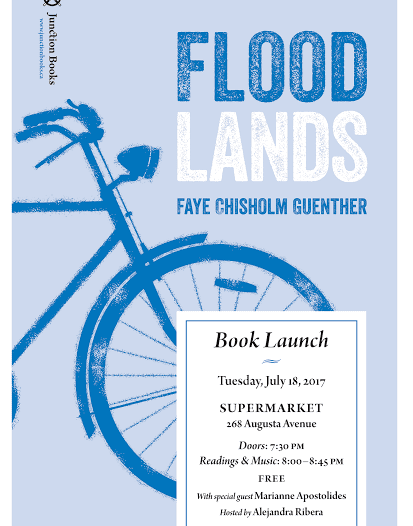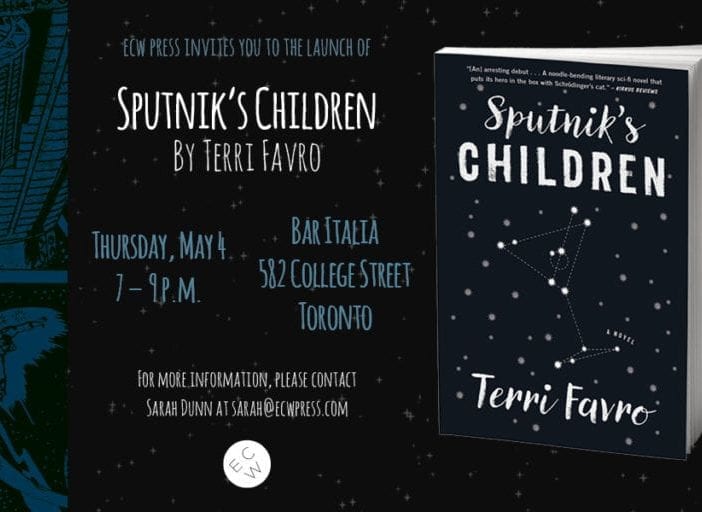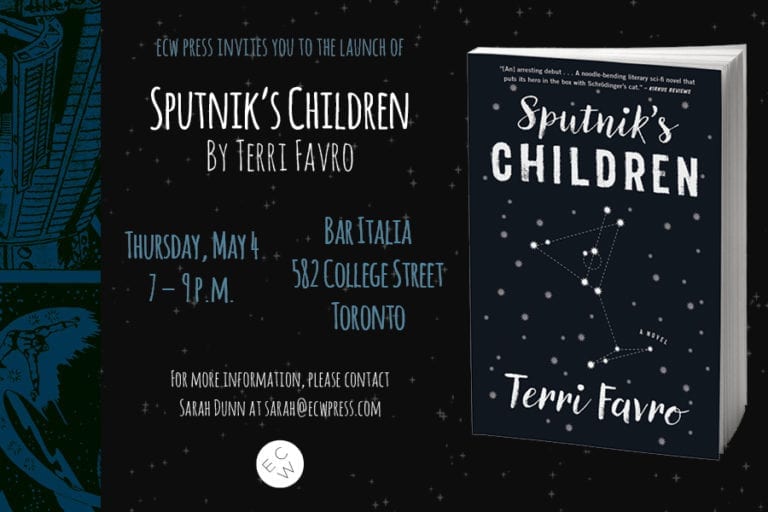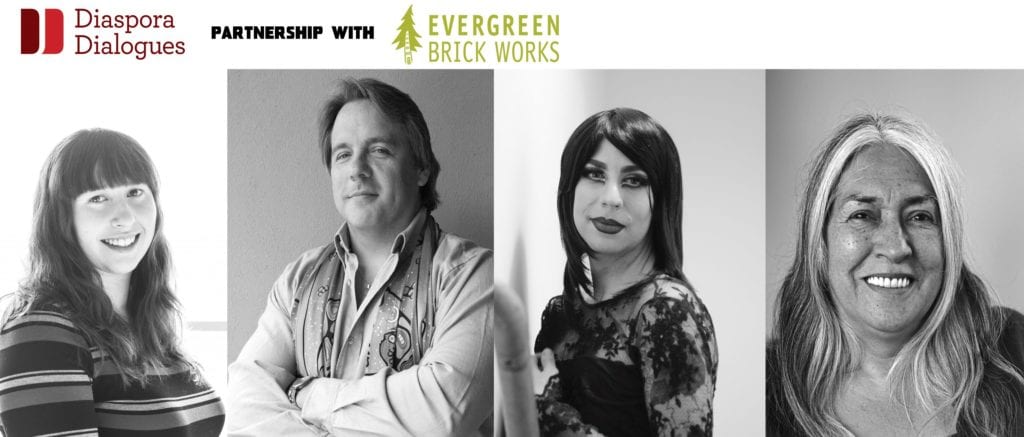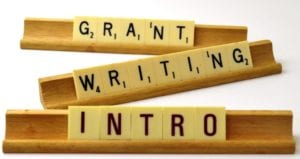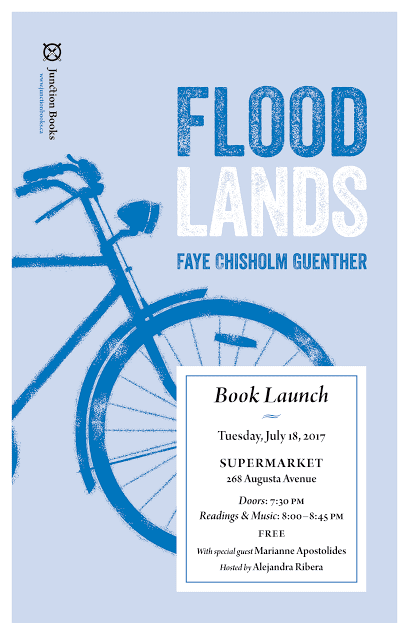
Faye Chisholm Guenther launches her new chapbook, Flood Lands, published by Junction Books.
The launch is on Tuesday, July 18, 2017 at the Supermarket, 268 Augusta Ave.
Doors: 7:30 p.m. | Readings and a short musical performance: 8:00 – 8:45 p.m.
The event will be hosted by singer-songwriter Alejandra Ribera With special guest Marianne Apostolides
FREE Event page: https://www.facebook.com/events/242606312905599/

